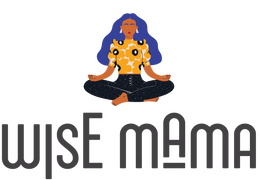Eat to Empower: How Balanced Indian Meals Fuel Hormonal Health & Energy
Hormonal health isn’t just about monthly cycles or fertility. It plays a central role in a woman’s everyday energy levels, mood, metabolism, and even how well she sleeps. And the simplest, most effective way to influence hormones? Food.
Balanced eating isn't about strict rules or boring routines. It’s about choosing the right combinations of foods that give your body what it needs to stay in sync. In fact, the traditional Indian thali—with its mix of grains, lentils, vegetables, dairy, and spices—already gives us the blueprint for hormonal wellness.
Let’s start with the basics. A hormone-friendly Indian diet typically consists of 50–60% of calories from complex carbohydrates (like millets, brown rice, oats), 10–15% from proteins (such as lentils, paneer, or chicken), and 20–30% from healthy fats (including nuts, seeds, and ghee). This ratio supports blood sugar balance, which is a cornerstone of hormonal health. When blood sugar spikes and crashes, hormones like insulin and cortisol go into overdrive—and that can throw off the rest of your body’s balance.
The next step is color and variety. Meals that include a rainbow of vegetables, whole grains, pulses, and healthy fats help fuel hormone production, reduce inflammation, and support your gut. For example, a protein-rich breakfast of moong dal chilla or ragi dosa not only keeps you full but also kicks off the day with steady energy. Midday meals of brown rice or millet khichdi with vegetables, and a cup of curd or buttermilk, keep digestion strong and moods stable.
Craving comfort in the evenings? Try a warm bowl of palak dal with bajra roti or a vegetable saag with a spoon of ghee. These foods aren’t just nourishing—they’re grounding, soothing, and supportive of women’s hormonal cycles.
Let’s talk spices. Ginger, turmeric, cinnamon, and garlic do more than just flavor your food. They act as natural anti-inflammatories, helping regulate hormones and reducing menstrual cramps, bloating, and mood swings. A pinch of turmeric in your dal or a slice of ginger in your tea can go a long way.
Hydration, too, is essential. Herbal teas like ginger or chamomile help with cramps and calm the nervous system. Coconut water or chaas hydrates without the sugar rush of packaged drinks.
Now, what happens during menstruation?
During your period, your body is working hard and losing iron through blood loss. That’s when you need iron-rich meals: spinach, fenugreek, amaranth, dals, and jaggery. Cook them in traditional ways—like palak dal, methi paratha, or rajma rice with greens. Combine these with Vitamin C-rich foods (like tomatoes, lemon juice, or amla) to enhance iron absorption.
Magnesium also matters. Nuts and seeds like pumpkin, flax, and sesame help reduce muscle cramps and stabilize mood swings. Ever noticed how bananas make you feel better on your period? That’s magnesium at work.
And for those with PCOS or irregular periods, eating to balance blood sugar is even more critical. Millets, beans, pulses, non-starchy vegetables, and healthy fats should be the foundation of your meals. Ditch refined carbs. Instead, choose a millet khichdi with vegetables, a bowl of curd, and a teaspoon of flaxseed in your sabzi.
Hormonal harmony doesn’t come from supplements alone. It begins with real food, especially traditional, home-style Indian meals made with love and intention.
FAQs for Hormonal Balance through Diet
What should I eat in the morning to balance hormones naturally?
Start your day with complex carbs and protein. Think moong dal chilla with mint chutney, or ragi dosa with sambar. These stabilize blood sugar and boost energy.
Which Indian foods are good during periods?
Spinach, methi, dals, sesame seeds, and turmeric milk help replenish lost nutrients and ease cramps. Pair iron-rich foods with Vitamin C for better absorption.
Are millets good for hormonal balance?
Yes, millets like ragi, bajra, and foxtail millet are rich in iron, fiber, and magnesium—all crucial for hormone health. They also help prevent insulin spikes.
How can I avoid bloating during PMS?
Avoid processed foods and carbonated drinks. Drink herbal teas like ginger or chamomile, eat light meals with lots of greens, and stay hydrated.
Can spicy food affect hormones?
Not necessarily. Spices like turmeric, ginger, and cinnamon can actually help balance hormones by reducing inflammation.



